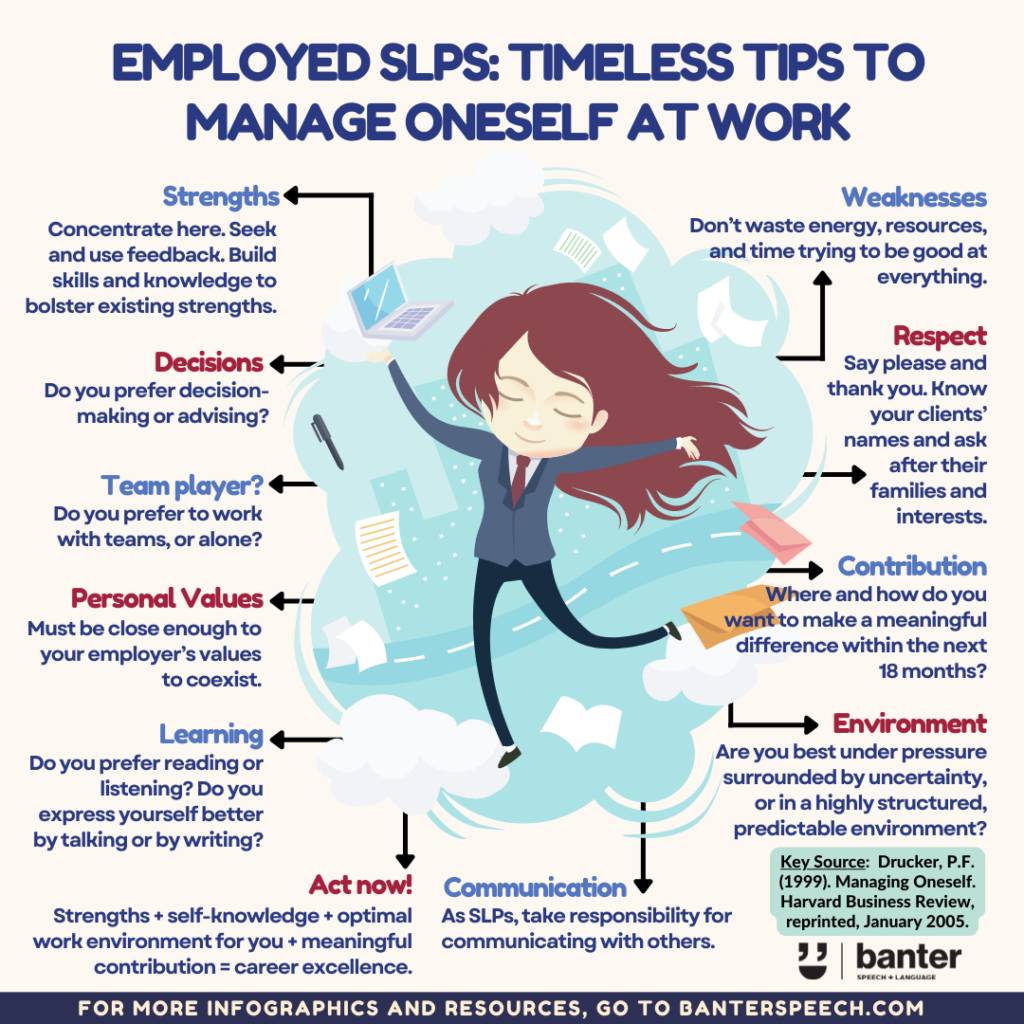Employed speech pathologists: timeless tips to manage oneself at work
- Strengths: Concentrate here. Seek and use feedback. Build skills and knowledge to bolster existing strengths.
- Weaknesses: Don’t waste energy, resources, and time trying to be good at everything.
- Respect: Say please and thank you. Know your clients’ names and ask after their families and interests.
- Learning: Do you prefer reading or listening? Do you express yourself better by talking or by writing?
- Team player? Do you work well with teams, or alone?
- Decisions: Do you prefer decision-making or advising?
- Environment: Are you best under pressure surrounded by uncertainty, or in a highly structured, predictable environment?
- Personal values: Must be close enough to your employer’s values to coexist.
- Contribution: Where and how do you want to make a meaningful difference within the next 18 months?
- Communication: As speech pathologists, take responsibility for communicating with others.
- Act now: Strengths + self-knowledge + optimal work environment for you + meaningful contribution = career excellence.

Key source: Drucker, P.F. (1999). Managing Oneself. Harvard Business Review, reprinted, January 2005.
For information on supervision, check out our book “How to supervise speech pathologists properly in private practice“.
This infographic also appears in a recent issue of Banter Booster, our weekly round up of the best speech pathology ideas and practice tips for busy speech pathologists and speech pathology students.
Sign up to receive Banter Booster in your inbox each week:

Hi there, I’m David Kinnane.
Principal Speech Pathologist, Banter Speech & Language
Our talented team of certified practising speech pathologists provide unhurried, personalised and evidence-based speech pathology care to children and adults in the Inner West of Sydney and beyond, both in our clinic and via telehealth.








